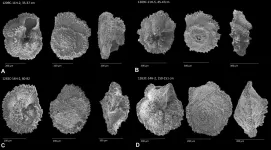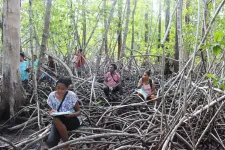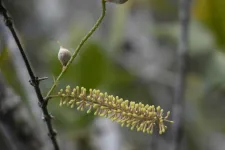(Press-News.org) Lockdown and other restrictions imposed to control the COVID-19 pandemic have had unseen negative effects on the cognitive capacity and mental health of the population. A study led by the UOC's research group Open Evidence, in collaboration with international universities and BDI Schlseinger Group Market Research, has gauged the impact of the measures taken during the first and second waves of the virus on citizens of three European Union countries. The study concludes that the shock produced by the situation has reduced people's cognitive capacity, leading them to take more risks, despite the risk of contagion, and make poorer choices, including a tendency to be less altruistic and the desire to punish others.
The study, published in the open access journal Scientific Reports, published by Nature, analyses the relationship between the negative impact of pandemic control measures and people's cognitive functioning and risk, time and social preferences.
The sample consisted of nearly 5,000 volunteers from Spain, Italy and the United Kingdom - three countries criticized for their poor management of the pandemic, where lockdown has had a greater impact on their populations than in other European states. The participants were asked to respond to questionnaires during the first and second waves of the pandemic.
In the first of the two questionnaires, the researchers collected data on levels of exposure to four types of impacts during lockdown: occupational, health, mental health, and stress. In the second, they measured the cognitive function of the volunteers, as well as a series of parameters related to risk, decision-making, altruism, and reciprocity, among others.
"We wanted to explore the impact of lockdown and other COVID-19-related restrictions on people's lives and how this affected their decision-making," explained Francisco Lupiáñez, professor of Information and Communication Sciences and member of Open Evidence.
The results of the study show that those who were more exposed to the consequences of the effects of lockdown also experienced more diminished cognitive capacity, made riskier decisions, and suffered reduced civic-mindedness.
"People's impaired decision-making abilities were impaired, and their reactions were not those we might have expected," said the researcher. "Instead of being more careful because they were in a pandemic, they were taking risks, because they couldn't take it any more." As for their relations with others, "they wanted, for example, those who did not wear masks or evaded restrictions to be punished, even though they themselves were more likely to make riskier choices".
According to Lupiáñez, "very difficult choices were made without taking into account the social cost involved. They only took into account a single, short-term perspective. And now we know that four out of ten people were at risk of suffering a mental health-related illness as a result of the shock produced by this pandemic. All this will have implications in the medium term".
Another of the effects identified by the authors of this paper is that, under the shock of the pandemic, people tended to want immediate benefits and made on-the-spot decisions, some of them momentous, such as deciding to move from the city to a rural setting. "These were decisions in which the cost-benefit assessment was highly conditioned by the pandemic. It seemed as if the world was coming to an end and people preferred to benefit today, immediately, without thinking about tomorrow," said Lupiáñez.
According to the authors, their conclusions have important implications in terms of public health. The current pandemic and the various mitigation strategies, such as lockdowns, have had significant detrimental consequences in terms of occupational and health impacts. It is important, they say, that these be taken into account in "designing better responses and communication campaigns for future pandemics".
INFORMATION:
Related article
Bogliacino, F., Codagnone, C., Montealegre, F. et al. Negative shocks predict change in cognitive function and preferences: assessing the negative affect and stress hypothesis. Sci Rep 11, 3546 (2021). https://doi.org/10.1038/s41598-021-83089-0
UOC R&I
The UOC's research and innovation (R&I) contribute to solving the challenges facing the global societies of the 21st century by studying how technology and the human and social sciences interact, with a specific focus on the network society, e-learning and e-health.
Over 500 researchers and 51 research groups work among the University's seven faculties and two research centres: the Internet Interdisciplinary Institute (IN3) and the eHealth Center (eHC).
The United Nations' 2030 Agenda for Sustainable Development and open knowledge serve as strategic pillars for the UOC's teaching, research and innovation.
More information: research.uoc.edu. #25yearsUOC
Astronomers have discovered new hints of a giant, scorching-hot planet orbiting Vega, one of the brightest stars in the night sky.
The research, published this month in The Astrophysical Journal, was led by University of Colorado Boulder student Spencer Hurt, an undergraduate in the Department of Astrophysical and Planetary Sciences.
It focuses on an iconic and relatively young star, Vega, which is part of the constellation Lyra and has a mass twice that of our own sun. This celestial body sits just 25 light-years, or about 150 trillion miles, from Earth--pretty close, astronomically speaking.
Scientists can also see Vega with telescopes even when it's light out, which makes ...
Microscopic fossilized shells are helping geologists reconstruct Earth's climate during the Paleocene-Eocene Thermal Maximum (PETM), a period of abrupt global warming and ocean acidification that occurred 56 million years ago. Clues from these ancient shells can help scientists better predict future warming and ocean acidification driven by human-caused carbon dioxide emissions.
Led by Northwestern University, the researchers analyzed shells from foraminifera, an ocean-dwelling unicellular organism with an external shell made of calcium carbonate. After analyzing the calcium isotope composition of the fossils, the researchers concluded that massive volcanic activity injected large amounts of carbon dioxide into the Earth system, causing global warming and ocean acidification.
They ...
Artificial intelligence can already scan images of the eye to assess patients for diabetic retinopathy, a leading cause of vision loss, and to find evidence of strokes on brain CT scans. But what does the future hold for this emerging technology? How will it change how doctors diagnose disease, and how will it improve the care patients receive?
A team of doctors led by UVA Health's James H. Harrison Jr., MD, PhD, has given us a glimpse of tomorrow in a new article on the current state and future use of artificial intelligence (AI) in the field of pathology. Harrison and other members of the College of American Pathologists' Machine Learning ...
In a new paper published in Light: Science & Applications, the group led by Professor Andrea Fratalocchi from Primalight Laboratory of the Computer, Electrical and Mathematical Sciences and Engineering (CEMSE) Division, King Abdullah University of Science and Technology (KAUST), Saudi Arabia, introduced a new patented, scalable flat-optics technology manufactured with inexpensive semiconductors.
The KAUST-designed technology leverages on a previously unrecognized aspect of optical nanoresonators, which are demonstrated to possess a physical layer that is completely equivalent to a feed-forward deep neural network.
"What we have achieved," explains Fratalocchi, "is a technological process to cover ...
Women are largely being excluded from decisions about conservation and natural resources, with potentially detrimental effects on conservation efforts globally, according to research.
A University of Queensland and Nature Conservancy study reviewed a swathe of published conservation science, investigating the cause and impact of gender imbalance in the field.
UQ PhD candidate and Nature Conservancy Director of Conservation in Melanesia Robyn James said it was no secret that females were underrepresented in conservation science.
"In fact, according to a recent analysis of 1051 individual top?publishing authors in ecology, evolution and conservation research, only 11 per cent were women," Ms James said.
"We analysed more than 230 peer-reviewed articles attempting ...
One of the world's rarest tree species has been transformed into a sophisticated model that University of Queensland researchers say is the future of plant research.
"Macadamia jansenii is a critically endangered species of macadamia which was only described as a new species in 1991," said Robert Henry, Professor of Innovation at the Queensland Alliance for Agriculture and Food Innovation (QAAFI).
"It grows near Miriam Vale in Queensland and there are only around 100 known trees in existence."
However, with funding from Hort Innovation's Tree Genomics project, and UQ's Genome Innovation Hub Macadamia jansenii has now become the world's most sophisticated plant research model.
Professor Henry said ...
In a perfect world, what you see is what you get. If this were the case, the job of artificial intelligence systems would be refreshingly straightforward.
Take collision avoidance systems in self-driving cars. If visual input to on-board cameras could be trusted entirely, an AI system could directly map that input to an appropriate action -- steer right, steer left, or continue straight -- to avoid hitting a pedestrian that its cameras see in the road.
But what if there's a glitch in the cameras that slightly shifts an image by a few pixels? If the car blindly trusted so-called "adversarial inputs," it might take unnecessary and potentially dangerous action.
A new deep-learning algorithm developed by MIT researchers is designed to help machines ...
Cancers that are resistant to radiotherapy could be rendered susceptible through treatment with immunotherapy, a new study suggests.
Researchers believe that manipulating bowel cancers based on their 'immune landscape' could unlock new ways to treat resistant tumours.
Cancers can evolve resistance to radiotherapy just as they do with drugs.
The new study found that profiling the immune landscape of cancers before therapy could identify patients who are likely to respond to radiotherapy off the bat, and others who might benefit from priming of their tumour with immunotherapy.
Scientists at The Institute of Cancer Research, London, in collaboration with the University of Leeds and The Francis Crick ...
The public doesn't need to know how Artificial Intelligence works to trust it. They just need to know that someone with the necessary skillset is examining AI and has the authority to mete out sanctions if it causes or is likely to cause harm.
Dr Bran Knowles, a senior lecturer in data science at Lancaster University, says: "I'm certain that the public are incapable of determining the trustworthiness of individual AIs... but we don't need them to do this. It's not their responsibility to keep AI honest."
Dr Knowles presents (March 8) a research paper 'The Sanction of Authority: Promoting Public Trust in AI' at the ACM Conference on Fairness, Accountability and Transparency (ACM FAccT).
The ...
Lowering the operating temperature of solar panels by just a few degrees can dramatically increase the electricity they generate over their lifetime, KAUST researchers have shown. The hotter a panel gets, the lower its solar power conversion efficiency (PCE) and the faster it will degrade and fail. Finding ways to keep solar panels cool could significantly improve the return on investment of solar-power systems.
The long-standing focus of photovoltaics (PV) research has been to improve solar modules' PCE and make solar power more cost-competitive than nonrenewable power ...



